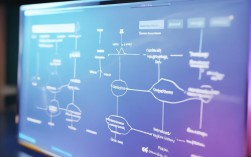会计职业基础思维导图是将会计学科的核心知识点、逻辑关系和实践应用通过结构化方式呈现的可视化工具,帮助系统掌握会计核算流程、准则应用及职业素养要求,以下从核心模块、逻辑框架及实践延伸三个维度展开详细说明。

核心模块构成
会计职业基础思维导图的核心模块可分为“会计基本理论—会计核算流程—会计要素与等式—财务报表编制—会计职业规范”五大主干,每个主干下设细分分支,形成层次化知识体系。
会计基本理论
作为思维导图的根基,该模块定义会计的本质与目标,分支包括:
- 会计概念:以货币为主要计量单位,反映和监督一个单位经济活动的一种经济管理工作。
- 会计基本假设:会计主体(明确核算空间范围)、持续经营(假设企业长期存续)、会计分期(划分时间段为年度/半年度/季度/月度)、货币计量(以人民币为记账本位币)。
- 会计基础:权责发生制(以权利形成或责任承担为标志确认收入费用)与收付实现制(以实际收支为标志),企业会计一般采用权责发生制。
- 会计信息质量要求:可靠性(真实完整)、相关性(满足决策需要)、可理解性(清晰明了)、可比性(横向纵向可比)、实质重于形式、重要性、谨慎性、及时性。
会计核算流程
该模块是会计实践的核心操作路径,分支涵盖“凭证—账簿—报表”的完整循环:
- 会计凭证:原始凭证(如发票、收据,证明经济业务发生)→记账凭证(根据原始凭证编制,确定会计分录)。
- 会计账簿:日记账(序时记录,如现金日记账、银行存款日记账)、总分类账(总括核算科目)、明细分类账(详细核算子目),通过平行登记确保账证、账账相符。
- 对账与结账:对账包括账证核对、账账核对、账实核对(如财产清查);结账为每个会计期末结算本期发生额及余额。
- 账务处理程序:记账凭证账务处理程序(简单适用)、汇总记账凭证账务处理程序(简化登记总账)、科目汇总表账务处理程序(适用中小型企业)。
会计要素与会计等式
会计要素是会计核算对象的基本分类,会计等式是复式记账的理论基础:
- 会计要素:
- 资产(企业拥有或控制的资源,如货币资金、存货)、负债(企业承担的现时义务,如短期借款、应付账款)、所有者权益(所有者享有的权益,如实收资本、留存收益);
- 收入(日常活动形成的经济利益流入,如主营业务收入)、费用(日常活动发生的经济利益流出,如主营业务成本、管理费用)、利润(收入减费用后的差额)。
- 会计等式:
- 静态等式:资产=负债+所有者权益(反映财务状况,编制资产负债表基础);
- 动态等式:收入-费用=利润(反映经营成果,编制利润表基础)。
财务报表编制
财务报表是会计信息的最终输出,核心报表及编制逻辑如下:
| 报表类型 | 编制基础 | |
|---|---|---|
| 资产负债表 | “资产=负债+所有者权益” | 反映企业在特定时点的资产、负债及所有者权益状况,按流动性排列。 |
| 利润表 | “收入-费用=利润” | 反映企业在一定会计期间的经营成果,包括营业收入、营业利润、利润总额等。 |
| 现金流量表 | 现金及现金等价物 | 反映企业现金及现金等价物的流入流出,分为经营活动、投资活动、筹资活动。 |
| 所有者权益变动表 | 所有者权益各项目 | 反映构成所有者权益各组成部分当期的增减变动情况。 |
会计职业规范
该模块约束会计职业行为,确保信息质量与职业道德:
- 会计法律:《中华人民共和国会计法》(根本大法,规范会计行为);
- 会计准则:企业会计准则(如《企业会计准则——基本准则》)、小企业会计准则;
- 会计制度:企业内部会计控制制度、会计档案管理制度;
- 职业道德:爱岗敬业、诚实守信、廉洁自律、客观公正、坚持准则、提高技能、参与管理、强化服务。
逻辑框架与知识关联
思维导图的逻辑主线是“理论指导实践,实践输出信息”,具体关联如下:
- 理论到流程:会计基本假设与信息质量要求指导核算流程的规范性(如会计分期决定结账周期,可靠性要求原始凭证真实);
- 要素到报表:会计要素是报表的构成基础(资产、负债、所有者权益构成资产负债表,收入、费用构成利润表);
- 流程到规范:核算流程需遵循职业规范(如账簿登记需符合会计制度要求,报表编制需遵循会计准则)。
实践延伸与职业应用
会计职业基础思维导图需延伸至实际工作场景,强化知识落地:
- 税务处理衔接:会计核算需考虑税法要求(如收入确认时间需与增值税纳税义务时间协调);
- 成本核算应用:制造业需掌握品种法、分批法、分步法等成本核算方法,准确计算产品成本;
- 财务软件操作:熟练使用用友、金蝶等财务软件,实现凭证录入、自动生成报表等功能;
- 内部控制意识:通过不相容岗位分离(如出纳不得兼任稽核、会计档案保管)、财产清查等手段防范风险。
相关问答FAQs
Q1:会计基础思维导图中,“权责发生制”与“收付实现制”的核心区别是什么?实际工作中如何选择?
A1:核心区别在于收入和费用的确认时间标准:权责发生制以“权利形成”或“责任承担”为标志,即使款项未收付也需确认(如本期销售商品但未收款,确认为本期收入);收付实现制以“实际收付”为标志,仅记录当期现金收支(如本期收到上月销售款项,确认为本期收入),实际工作中,企业会计核算(如编制财务报表)必须采用权责发生制,以真实反映经营成果;而政府会计、事业单位会计中的部分业务(如预算会计)可采用收付实现制,侧重反映现金收支情况。
Q2:会计职业基础思维导图中,“实质重于形式”原则在实务中如何体现?举例说明。
A2:“实质重于形式”要求企业按照交易或事项的经济实质而非法律形式进行会计核算,确保信息真实反映财务状况,典型体现包括:
- 融资租赁:租入资产的法律所有权属于出租方,但实质上企业(承租方)控制了资产的未来收益与风险,故需确认为自有资产并计提折旧;
- 售后回购:企业销售商品并约定回购,若回购价格固定,实质是以商品为抵押的融资行为,不确认收入,而确认为负债;
- 附有销售退回条款的销售:若企业能够估计退货率,需在发出商品时按预期退货金额冲减收入,而非等到实际退货时确认,该原则的应用需依赖职业判断,避免仅凭法律形式误导信息使用者。











